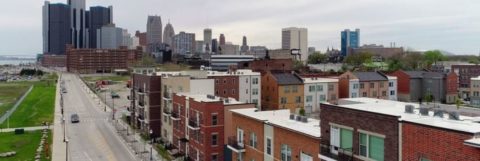When it comes to serving as a mayor of an iconic global city, a nuanced “in-the-weeds” approach to policy is a job requirement. That presents an extraordinary challenge in today’s 24/7 news cycle.
Few leaders across the country have demonstrated the knack for implementing the type of policy that recognizes “the Power of &” quite like Detroit Mayor Mike Duggan. The Detroiter magazine asked the Mayor to talk about his approach to key issues and how avoiding “either-or” decision-making has delivered results for the city.
In tackling blight, the city has rehabbed salvageable properties while demolishing others. Why has your approach been successful and what is needed to keep property values in the city on the rise?
Over the past 9 years, we have removed about 25,000 dangerous vacant houses, but we’ve also sold more than 16,000 vacant Land Bank houses renovated and reoccupied by new families in neighborhoods across the city. Because of this work, home values in most neighborhoods have doubled or tripled over the past five years. We have a heavy emphasis now on beautifying our commercial corridors and building new streetscapes to attract new businesses, as well as renovating our neighborhood parks, all of which add to the value of a neighborhood. The next thing we plan to tackle is our property tax structure, which can be a major impediment to residential housing growth.
In terms of economic development, why is balancing the need for tax incentives and community benefits so important?
Tax incentives are a necessary tool for many developments to work financially for the developer and are only offered after a thorough review determines the project could not happen but for the incentive. What developers typically get is a discount on the increased property taxes that result in the higher value of the property created by the development itself. That discount is more than offset by the income taxes generated by these developments, which can be used to improve and expand city services across all neighborhoods. The community benefits process gives residents a voice in the process and allows them to negotiate benefits to offset any potential impact the development may have on their neighborhood. Between both of these approaches, developers and residents are treated fairly.


